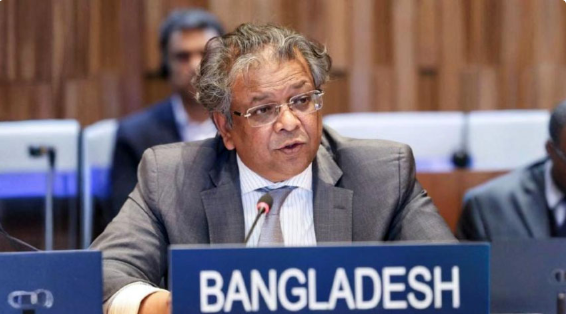Bangladesh has achieved a historic milestone by being elected President of the 43rd General Conference of UNESCO, marking the first time the country has held this prestigious position in its 53 years of membership with the organisation.
During a vote held at the 222nd Session of the UNESCO Executive Board in Paris, Bangladesh’s candidate, Ambassador Khondker M Talha, won the presidency by 30 votes to 27, defeating Japan. Initially, four countries — Bangladesh, Japan, India, and the Republic of Korea — had contested for the post, but India and Korea withdrew their candidatures in September.
Ambassador Talha, Bangladesh’s Permanent Delegate to UNESCO and Ambassador to France, Monaco, and Côte d’Ivoire, will succeed Ambassador Simona Mirela Miculescu of Romania at the General Conference scheduled later this month in Samarkand, Uzbekistan.
In a joint statement, Chief Adviser Professor Muhammad Yunus, Education Adviser Dr CR Abrar, and Cultural Affairs Adviser Mostofa Sarwar Farooki expressed deep appreciation to the UNESCO Executive Board for electing Bangladesh to this distinguished role.
Professor Yunus hailed the victory as “a landmark achievement,” praising the education and cultural affairs teams and the Permanent Mission for their leadership.
“This is a proud moment for Bangladesh,” he said. “Very enthusiastic congratulations to Ambassador Talha and his team for bringing this international prestige to the nation.”
Dr CR Abrar remarked that the election “will bring global attention to Bangladesh’s contributions in arts, culture, and education,” calling it “a rare honour.”
Mostofa Sarwar Farooki added that Bangladesh’s active engagement in recent UNESCO sessions “has drawn international praise,” and the new role will serve as “a powerful platform to project the vibrancy of our artistic, cultural, and heritage landscape.”
Appointed as Permanent Delegate to UNESCO in 2021, Ambassador Talha expressed gratitude to the Executive Board for its confidence, calling the victory “a historic achievement” and pledging to uphold UNESCO’s mandate during this critical time for global multilateralism.




